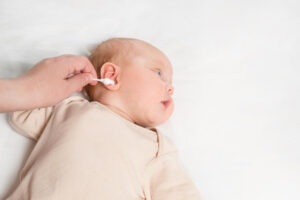Introduction to Autoimmune Ear Diseases

In this article, Dr Shree Rao talks about autoimmune ear diseases. She is the Best Doctor for Cochlear Implants.
Autoimmune ear diseases represent a category of medical conditions that have gained recognition and understanding in recent years. These disorders occur when the body’s immune system mistakenly targets the structures of the ear, leading to a range of symptoms and potential complications. While autoimmune diseases affecting other parts of the body have been studied extensively, autoimmune ear diseases remain a relatively lesser-known area of research.
The human ear is a complex and delicate sensory organ responsible for hearing and maintaining balance. It comprises various structures, including the outer ear, middle ear, and inner ear, each with its own specific functions. Autoimmune ear diseases can impact any of these components, resulting in hearing loss, vertigo, ear pain, and other distressing symptoms.
Widely acknowledged for her profound expertise in the field of otology, Dr. Shree Rao stands as a paragon of unwavering commitment to the improvement of lives affected by autoimmune ear diseases. Her contributions shine as a beacon of hope and progress in the ongoing pursuit of understanding and effectively managing these complex conditions.
Types of Autoimmune Ear Diseases
Autoimmune ear diseases encompass a variety of conditions, each with its unique characteristics and effects on the auditory and vestibular systems. Here are some of the primary autoimmune ear diseases:
AIED is one of the most common autoimmune ear diseases. It typically presents with bilateral, rapidly progressive sensorineural hearing loss. Patients may also experience tinnitus (ringing in the ears) and imbalance. AIED is often associated with autoimmune conditions like rheumatoid arthritis and lupus.
This rare autoimmune ear disease affects multiple organs, including the eyes and inner ear. It is characterized by symptoms such as vertigo, hearing loss, inflammatory eye issues, and even aortic aneurysms. Prompt diagnosis and treatment are critical to managing this complex condition.
While not always classified as an autoimmune ear disease, some cases of vestibular neuritis may have an autoimmune component. It leads to sudden vertigo and balance problems due to inflammation of the vestibular nerve.
Although the exact cause of Meniere’s disease is still debated, some researchers believe it may involve an autoimmune response. This condition manifests as recurrent vertigo, hearing loss, tinnitus, and a sensation of fullness in the affected ear.
Susac syndrome is an autoimmune disorder primarily affecting small blood vessels in the brain, retina, and inner ear. Symptoms include hearing loss, vision disturbances, and cognitive issues. Early detection and treatment are essential to prevent severe complications.
GPA is a systemic autoimmune disease that can involve the ears, nose, and throat. Ear-related symptoms may include hearing loss, chronic ear infections, and sinus problems. GPA requires comprehensive medical management.
The Immune System's Role
The immune system comprises a complex network of cells, tissues, and molecules working in unison to protect the body. It can be broadly categorized into the innate and adaptive immune responses. The innate response provides immediate, general defense against pathogens, while the adaptive response is highly specific and develops memory against encountered threats.
In autoimmune ear diseases, the immune system’s attack primarily targets the delicate structures of the inner ear. These structures include the cochlea, responsible for hearing, and the vestibular system, responsible for balance. The immune system’s assault on these areas results in a range of auditory and vestibular symptoms.
The hallmark of autoimmune ear diseases is inflammation within the inner ear. Inflammation can lead to various issues, such as sensorineural hearing loss, vertigo, tinnitus, and imbalance. The immune system’s inflammatory response damages the tissues it mistakenly identifies as threats.
Common Symptoms

Here are the typical symptoms associated with autoimmune ear diseases:
- Sensorineural Hearing Loss – This hallmark symptom affects the ability to hear clearly, especially soft sounds and speech in noisy environments.
- Vertigo – Characterized by a spinning sensation, dizziness, nausea, and imbalance due to disruptions in the inner ear’s vestibular system.
- Tinnitus – Perception of ringing, buzzing, or noises in the ears without an external source, often persistent and disruptive.
- Imbalance and Disequilibrium – Frequent falls and difficulty maintaining balance, particularly during sudden head movements.
- Aural Fullness – Sensation of fullness or pressure in the affected ear, similar to having something lodged inside.
- Fluctuating Symptoms – Symptoms may vary over time, with periods of exacerbation and remission, posing challenges for assessment.
- Unilateral or Bilateral Involvement – Autoimmune ear diseases can affect one or both ears, leading to asymmetrical or more pronounced issues with hearing and balance.
Causes
Some potential factors contributing to autoimmune ear diseases include:
- Immune System Dysfunction – The immune system mistakenly targets the inner ear or auditory nerve, causing inflammation and damage.
- Genetic Predisposition – Family history of autoimmune diseases can increase the risk of autoimmune ear conditions.
- Viral Infections – Infections like Epstein-Barr, cytomegalovirus, or herpes simplex virus may trigger abnormal immune responses affecting the inner ear.
- Environmental Factors – Exposure to toxins or pollutants might contribute to the development of autoimmune ear diseases.
- Hormonal Changes – Fluctuations in hormone levels, such as during pregnancy or menopause, can impact the immune system and autoimmune conditions.
- Medications – Certain drugs can induce autoimmune reactions in the inner ear, leading to inflammation and damage.
- Stress – Chronic stress or trauma history can disrupt immune system regulation, potentially contributing to autoimmune ear disorders.
- Underlying Autoimmune Conditions – Existing autoimmune diseases like rheumatoid arthritis or lupus may increase the risk of autoimmune ear diseases due to shared autoimmune mechanisms.
Diagnosis
Here are the essential aspects of diagnosing autoimmune ear diseases:
- Medical History and Symptom Assessment – Healthcare providers begin by taking a detailed medical history, including any family history of autoimmune diseases.
- Physical Examination – A thorough physical examination of the ears, nose, and throat is conducted to identify any visible signs of ear pathology or inflammation.
- Auditory Evaluation – Audiometric tests, including pure-tone audiometry and speech audiometry, are performed to assess hearing loss and its characteristics. These tests help determine the degree and type of hearing impairment.
- Vestibular Function Assessment – Vestibular function is evaluated through tests like videonystagmography (VNG) and electronystagmography (ENG) to assess balance and detect abnormalities in the inner ear’s vestibular system.
- Imaging Studies – Imaging techniques such as magnetic resonance imaging (MRI) or computed tomography (CT) scans may be utilized to visualize the inner ear structures and rule out other potential causes of symptoms.
- Blood Tests – Specific blood tests may be conducted to detect autoimmune markers.
- Allergy Testing – Allergy testing may be performed to rule out allergies as a potential cause of ear symptoms.
Treatment Options
Here are common treatment options:
- Corticosteroids – Corticosteroids are often prescribed to reduce inflammation in the inner ear. These medications can be administered orally, intravenously, or directly into the ear (intratympanic). They can provide rapid relief from symptoms, especially when administered early.
- Immunosuppressive Drugs – For individuals with more severe or refractory cases, immunosuppressive drugs like azathioprine or methotrexate may be considered. These medications work by suppressing the abnormal immune response responsible for ear damage.
- Biologic Therapies – Biologic therapies, such as anti-tumor necrosis factor (TNF) agents, are increasingly used in autoimmune diseases. They target specific immune system components involved in inflammation and can be effective in some cases.
- Plasmapheresis – Plasmapheresis, or plasma exchange, involves removing and replacing a portion of the patient’s blood to remove harmful antibodies and immune complexes. This procedure is reserved for severe cases not responding to other treatments.
- Cochlear Implants – In cases of profound sensorineural hearing loss, cochlear implants may be considered. These surgically implanted devices bypass damaged hair cells in the inner ear, providing a sense of sound.
- Vestibular Rehabilitation – Patients with balance and vestibular issues benefit from vestibular rehabilitation therapy. This involves exercises and maneuvers to improve balance and reduce vertigo symptoms.
- Hearing Aids – Hearing aids can enhance communication for individuals with hearing loss resulting from autoimmune ear diseases. They amplify sounds, making them more audible.
- Lifestyle Modifications – Patients can minimize symptoms by avoiding known triggers, reducing stress, and adopting a healthy lifestyle. Smoking cessation is crucial, as smoking can exacerbate autoimmune conditions.
Conclusion
As the medical community continues to unravel the mysteries of autoimmune ear diseases, Dr. Shree Rao’s work stands as a testament to the importance of specialized knowledge and patient-centered care in improving outcomes and fostering a brighter future for those grappling with these challenging conditions. In the ongoing pursuit of excellence in diagnosis, treatment, and support, Dr. Shree Rao’s impact is both profound and enduring.

Why consult EarSurgeon, Dr. Shree Rao?
Dr. Shree Cuddapah Rao is acclaimed as one of the best pediatric ENT specialists in Hyderabad. With 10+ years of deep domain experience in the field of ENT, she is the director at Dr. Rao’s ENT Super Specialty Hospital. She underwent specialized training in Rhinoplasty / Facial Plastic surgery at Singapore General Hospital, Singapore. She also underwent advanced training in cochlear implant surgery under Padmashri Dr. Milind V Kirtane and had a Fellowship in a cochlear implant. Having performed over 200 successful cochlear implants for patients worldwide, Dr. Shree Cuddapah Rao is also the recipient of several prestigious accolades in the domain of ENT. Dr. Shree Rao is one of the best ent doctor in hyderabad, to book an appointment click here.
Are you looking for
then you have landed at right place!







